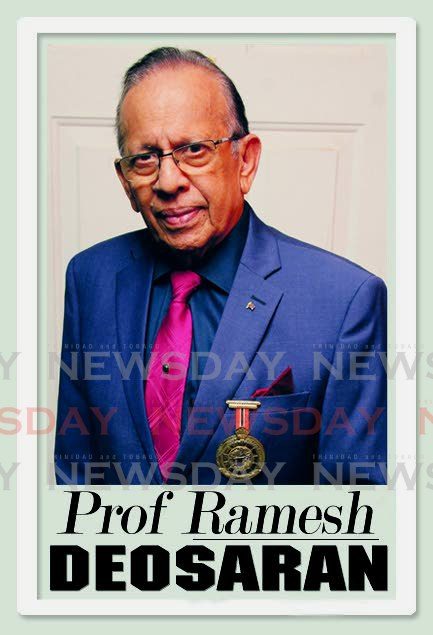Constitution reform hurdles

The Advisory Committee on Constitution Reform bravely faces three challenges in its information-gathering mission.
One, there is widespread scepticism over the exercise given the well-recorded misfortunes of previous such attempts.
It now seems ironical that both Reginald Dumas and Michael De la Bastide were members of the ill-fated 1974 Wooding Constitution Reform Commission. Former NAR minister Trevor Sudama, recalling history, also questioned the Advisory Committee’s credibility and mandate.
Two, given the noisy public concerns over their ground-level problems, bread and butter issues and of course, the “in-your-face” daily crime horrors, constitution reform is not seen as a front-burner imperative. At least, the public is not yet convinced.
Three, last week, UNC Jearlean John, publicly waving the current Constitution, argued that there is enough in our laws to solve many of the country’s problems without going sky high. Furthermore, her leader, Ms Kamla Persad-Bissessar, has already signalled the UNC’s non-participation. In his repeated appeals for constitution reform, Basdeo Panday’s main focus was on proportional representation, one of the PNM’s “untouchables.”
So here we are, chugging along, with the public uncertain as to how far this constitution reform journey will actually reach. It’s now a challenge for the committee to build inspiration, trust and leadership. Last month, bypassing public scepticism, I accepted the invitation of the current committee and made proposals.
While previous constitutional reform reports provided some structural recommendations, there was and still is a need to examine democracy itself, beyond the Westminster system, and how fundamental questions like, Who should govern? Is our system of political representation fair and sufficient? To what extent should we allow a fair and freely elected government to rule but be firmly accountable to the public?
Constitution reform exercise requires courage, vision and decisiveness. Tinkering will no longer do. Substantial reform is required.
My proposals include an executive president, an executive separate from legislature, fixed election dates, reduced number of ministers, recall of MPs and councillors, review of the Integrity in Public Life Act and Police Service Commission, election campaign finance and role of Attorney General.
The time has come for an executive president elected by the entire electorate with political independence, credibility, and integrity to earn public confidence and serve fairly and fearlessly.
All eligible citizens with credibility and integrity – businessmen, unionists, public servants, lawyers, doctors etc – can stand for presidential election. Hasn’t the president shown this possibility with the appointment of nine independent senators?
If a particular political party supports a presidential candidate this freedom of choice should not and does not necessarily mean the elected president is functionally obligated to that party. Presidential integrity must count.
Such support, implicitly or explicitly, is not enough to counter the great benefits an executive president will bring. Of course, it may not be a perfect solution, but it is the “lesser evil” and guarded by the free press. As Rousseau warned, politics is not about gods.
This executive president should select his or her cabinet from our most qualified, experienced, credible, and respected citizens. Ministerial ability will then firmly and competently match the task rather than having an almost random allocation of ministerial appointments. The president has shown this possibility by appointing nine senators.
The separation of powers doctrine will also be properly satisfied. That is, the executive will be separate but accountable to an elected parliament.
Further, having an MP as minister as we currently do, attending numerous committee meetings, serving his or her constituencies, etc, is a sure recipe for inefficiency and undue stress. The office of a minister of government should only have to deal with the constitutionally prescribed ministerial portfolio.
Further again, we now have the executive (cabinet ministers) sitting as full members of the legislature. This duplicity is anti-democratic. Here, the legislature protects the executive. So in terms of accountability, it is “Caesar unto Caesar.” How can this be tolerated?
The uncertainties in the political system should be removed. I propose constitutionally fixed dates for general and local government elections. The lottery-type privilege given to a prime minister in calling a general election at any time convenient to him or her creates too much uncertainty and puts other parties at an undeserving disadvantage.
In our democracy, there should be enshrined equality of political opportunity and a level political field. An election date and process should not be a guessing game for political parties, voters, investors, etc.
(To be continued)

Comments
"Constitution reform hurdles"